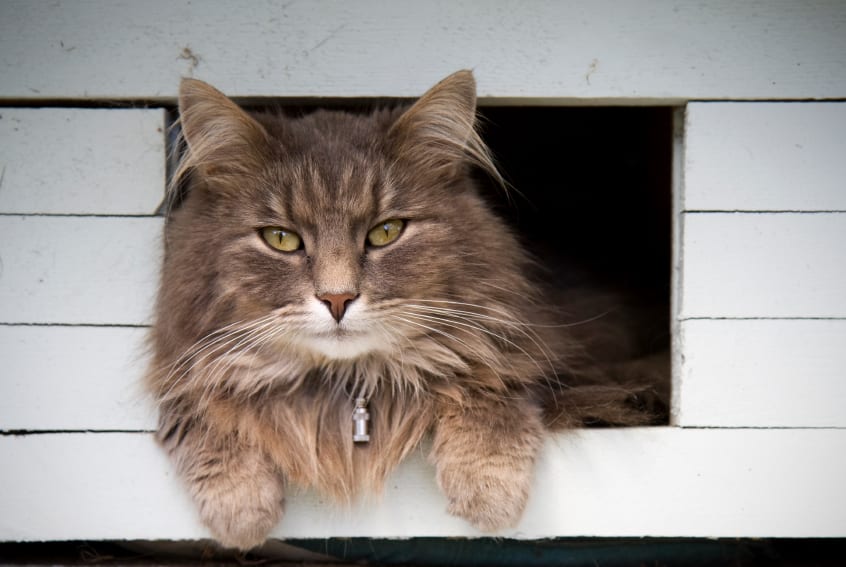Feline friendly renovations
Is your cat unhappy with your crib? Or are you thinking about getting a kitten and want to make sure your house meets all her needs? Well we have some pawsitively purrrrfect ideas on how to get your house kitty ready! Cat flaps The first and most obvious addition to your home will have to […]

Is your cat unhappy with your crib? Or are you thinking about getting a kitten and want to make sure your house meets all her needs? Well, we have some pawsitively perfect ideas on how to get your house kitty ready!
Cat flaps
The first and most obvious addition to your home will have to be a cat flap. If you’ve adopted a rescue kitten or a breed that is notoriously happy indoors, then you may not need one, but otherwise, it is a necessary purchase.
There is an array of options when it comes to cat flaps, including ones that can be installed on walls, screens, windows, and sliding doors. There are even flaps that are activated by microchips (for added security).
Flooring
Lino is very cat-friendly because it has anti-microbial properties and is very easy to maintain; however, tiling and wood floors are also appropriate. Low lustre choices or purposely distressed woods can minimize the effect of marks if your kitty decides to use the floorboards as a scratching post. Opt for replaceable rugs over permanent carpeting unless you want to make best friends with your vacuum cleaner.
Litter boxes
Cabinetry isn’t just for human furniture; more and more cat owners are sprucing up their felines’ litter boxes with custom-made wooden cabinets to give their kitty more privacy while they poop. It also conceals what is otherwise a bit of an ugly site, so invest in one right meow!
Toys
If you think that scratching posts aren’t worth it, then you’ve gotta be kitten me! They will potentially save your furniture from the wrath of your kitty’s claws, as well as your doors, flooring and linen.
Other additions
Consider using satin paint on your walls to avoid marks from wet dogs, oil stains from cats marking their territory or paw prints. Also, think about paints that are low in volatile organic compounds to ensure your pets aren’t licking potentially toxic walls.
Feng Shui isn’t the only thing you should be considering when you’re choosing where your furniture lives. If you have a dog, make sure the pantry isn’t easily accessible, there are no delicate ornaments near ground level, and medicines and toxic chemicals are stored high up. Cats like to lounge above ground level, so consider tall bookshelves, high mantel pieces or removable shelving; just make sure that it is not near the kitchen and dining areas, as that can be unhygienic.
